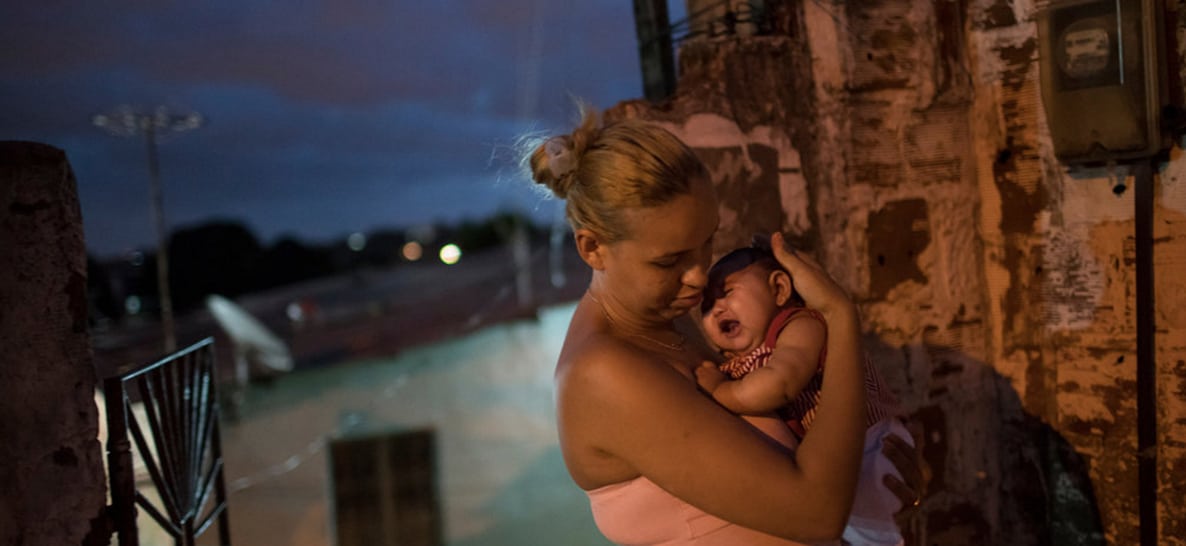
From ancient times until today, childbirth remains one of the most fearful and oftentimes painful moments in a woman’s life. Complications from pregnancy to postpartum, even today, can mean death for both mother and child. In fact, over 300,000 women die every year from preventable, treatable complications during pregnancy and childbirth, and for those newborns whose mother does not survive, they are 10 times more likely not to survive their first two years.
And now, the epidemic of the Zika virus is bringing issues of maternal and infant health to the front and center in many developing countries. Zika can be spread from a mother to a fetus, and is know to cause a birth defect known as microcephaly.
To date, the Zika virus has been associated with over 4,000 cases of microcephaly in Brazil and Latin America. More than 4 million people are expected to contract the virus within the next year.
Already, the CDC issued advisories for the Americas calling for postponing travel to the region, mosquito bite avoidance and safe sex practices. The Public Health Agency of Canada is even suggesting that women wait at least two months after travel before trying to get pregnant. Even Pope Francis has condoned the use of contraception during this period.
But what about the women who live in the undeveloped parts of those countries where Zika is spreading? Hundreds of thousands of women in many developing countries may not have access to quality health care or the proper prenatal counseling and care during and after pregnancy and childbirth.
More than 220 million women around the world say they want to avoid getting pregnant again but lack the information or the access to contraceptives to do so. This doesn’t just affect maternal health during outbreaks such as Zika; studies show that if the woman’s first debut of pregnancy is at or after 20 years of age, she is five times more likely to survive complications of pregnancy and childbirth than someone 15 years of age or younger.
Contraceptives can be a tricky subject for Christians. The Roman Catholic Church has traditionally opposed contraceptives, encouraging parishioners to practice natural family planning instead. Some protestants also personally oppose the use of contraceptives, while others see no problem with them. But, whether a woman wants to space out her pregnancies using natural family planning or a form of contraceptives, access to both information and contraceptives is limited in many Latin American countries. Prescriptions are required for birth control, pills are overpriced and the supplies are often not stocked properly in local pharmacies.
And once a woman gets pregnant, she may not have access to proper care during and after childbirth. It is also important to note the high rates of sexual violence, particularly in the Central America-4 region (El Salvador, Honduras, Guatemala and Nicaragua). Many women are victims of rape, causing unintended pregnancies. For instance, in El Salvador, unintended pregnancies account for over half of the pregnancies across the nation.
In the face of the Zika epidemic, sexual violence and maternal mortality, what is our responsibility as Christians in terms of advocacy for these women, girls and mothers-to-be?
In Proverbs 31, King Lemuel’s mother offers him some guidance in his ruling: “Speak up for those who cannot speak for themselves, for the rights of all who are destitute. Speak up and judge fairly; defend the rights of the poor.” We are called to advocate on behalf of vulnerable populations; we are called to provide a compassionate response to individuals in the face of violence, disease and extreme poverty. And in this case, part of the response may be to advocate for voluntary access to affordable, modern contraceptives so women can safely time, space and delay having children if they wish to do so. This should also include good counseling about natural family planning, or fertility awareness, if that is the desired method of choice.
Times of emergency rouse compassionate responses and a sense of urgency to address the perilous situation. In this situation, the Zika virus provides a clarion call to rethink the critical role of contraceptives in the lives of mothers and children and families not only in Latin America, but also around the world. Not only can contraceptives be life saving, but they also allow for a family to flourish—to emerge out of poverty, to feed every child, to send children to school and to allow moms to go back to work.
Let’s use this moment to reopen the discussion around family planning (not including abortion) for women in developing nations. Our U.S. government spends less than 1 percent of our budget on foreign assistance, and less than a fraction of that attends to maternal and child health and healthy timing and spacing of pregnancies. As Christians, this is a moment to speak up on behalf of mothers and children worldwide to protect or increase this funding. For less than a penny to the dollar, lives are saved—and changed.






















